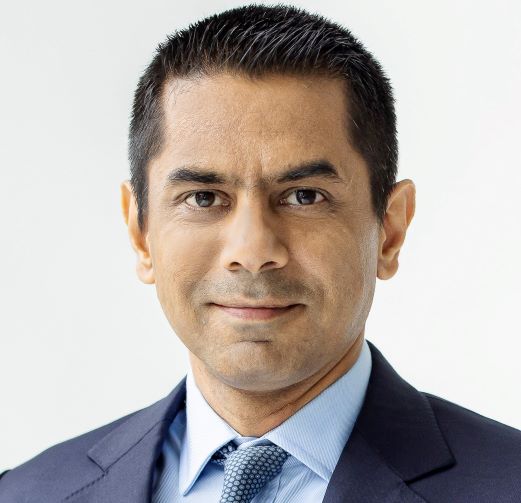Reassuringly boring stocks to tuck away
Boring can be better when it comes to stock picking. Professional investor Nitin Bajaj tips three such stocks to buy now.

Get the latest financial news, insights and expert analysis from our award-winning MoneyWeek team, to help you understand what really matters when it comes to your finances.
You are now subscribed
Your newsletter sign-up was successful
Want to add more newsletters?

Twice daily
MoneyWeek
Get the latest financial news, insights and expert analysis from our award-winning MoneyWeek team, to help you understand what really matters when it comes to your finances.

Four times a week
Look After My Bills
Sign up to our free money-saving newsletter, filled with the latest news and expert advice to help you find the best tips and deals for managing your bills. Start saving today!
Each week, a professional investor tells us where he'd put his money. This week:Nitin Bajaj, Fidelity Asian Values.
I invest my clients' money in exactly the same way as I would invest my own. If I am looking to buy a business personally, I look for a good company run by a management team I can trust, and I want to buy it at the best possible price. This allows me to avoid some of the racier stocks you can find in Asia. What this means is that many of the stocks I hold seem very boring. But boring is no bad thing, if it means you get limited downside with reasonable upside.
One stock I hold in my top ten is Religare Health Trust (Singapore: RF1U), which owns hospitals in India run by Fortis Group, one of three big hospital groups in the country. In the mid-2000s, Fortis began diversifying out of India, creating a business trust and selling ownership of its assets to Religare. This trust has a high dividend yield of around 8%, which is growing in line with the underlying assets. It also has "sticky" tenants, because, as a hospital, it is likely to be there for the next 20 years (at least).
MoneyWeek
Subscribe to MoneyWeek today and get your first six magazine issues absolutely FREE

Sign up to Money Morning
Don't miss the latest investment and personal finances news, market analysis, plus money-saving tips with our free twice-daily newsletter
Don't miss the latest investment and personal finances news, market analysis, plus money-saving tips with our free twice-daily newsletter
This makes it a stable, low-risk asset. As an added bonus, if government bond yields in India move down and inflation stays under control, the stock could re-rate. Religare Health Trust may not seem like the most exciting company in the world, but to my mind it offers a good risk/reward ratio for the long term.
Another example is Tisco Financial Group (Bangkok: TISCO), a Thai bank that holds about 80% of its book in short-cycle vehicle loans. Tisco is the leading car finance company in Thailand, and also has a small investment banking and securities division. When I bought it, it was trading at six times earnings, and offered a 6.5% dividend yield. It is well managed and well capitalised, but has been ignored by the market. Part of the reason for this was that in 2011 the Thai government introduced a subsidy programme designed to boost consumer spending.
As a result, an average production run of 800,000 cars a year went up to almost 1.2 million. Whenever something like this happens, it tends to create non-performing assets later on. In this case, people bought cars who shouldn't have, landing Tisco with its fair share of non-performing loans. This, combined with the fact that Thailand is not a very dynamic economy and was not hitting the headlines, meant the stock was overlooked by investors.
Finally, perhaps the most boring stock I hold is also the trust's largest position. Power Grid Corp (Mumbai: 532898) is the Indian equivalent of the UK's National Grid, a utility giant with a regulated business model. It offers a 17% return on equity and a dividend yield of 1.5%.
Utilities are not in fashion in India at the moment as the market is focused on cyclical businesses as well as consumer-related stocks. Consequently, these names are trading on around 40 times earnings, compared with around 11 times for Power Grid. But fashions change, and when the cycle shifts in favour of dull utilities once more, this stock could be a good one to own.
Get the latest financial news, insights and expert analysis from our award-winning MoneyWeek team, to help you understand what really matters when it comes to your finances.

Nitin Bajaj joined Fidelity in 2003 as a research analyst in London. After a very successful period in research, he became an Assistant Portfolio Manager in 2007 for the Fidelity Global Special Situations Fund in the UK. He subsequently moved to Mumbai in 2009 to manage Fidelity’s domestic Indian equity funds, before moving to Singapore in 2012 to manage the Fidelity Asian Smaller Companies Fund (SICAV). Since April 2015, he has also managed Fidelity Asian Values PLC utilising the same contrarian value philosophy and approach.
-
 Should you buy an active ETF?
Should you buy an active ETF?ETFs are often mischaracterised as passive products, but they can be a convenient way to add active management to your portfolio
-
 Power up your pension before 5 April – easy ways to save before the tax year end
Power up your pension before 5 April – easy ways to save before the tax year endWith the end of the tax year looming, pension savers currently have a window to review and maximise what’s going into their retirement funds – we look at how